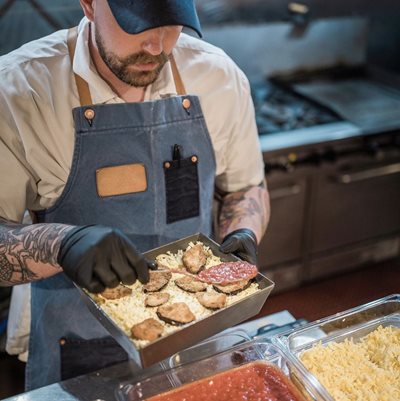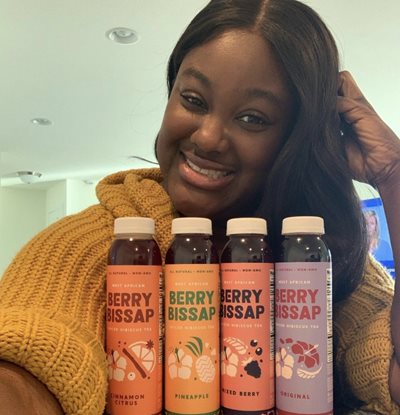When judges presented Charles Webb, chef and an owner of Hudson & Packard, with the title "Second Best Pan Pizza in the World," staff at Hudson River Housing celebrated, too. The pizza, created for the 2022 International Pizza Expo, was unique, made with duck confit, queso Oaxaca cheese and molé negro. The way the business started was unique, too – Hudson & Packard began in the communal kitchen at Poughkeepsie's Underwear Factory, which just celebrated its fifth anniversary.

Each year, Hudson River Housing does an annual business inventory, which has shown a commercial vacancy rate of 25% in Poughkeepsie’s Main Street corridor. "Our ultimate objective is to steward locally grown businesses that can populate vacant spaces, create local jobs, and build more vibrant and sustainable communities," Celaya says. "We want to reduce barriers for entrepreneurs to start their own businesses, especially people of color."
Pre-COVID, hospitality was one of the fastest growing businesses in the Hudson Valley, so it made sense to start there, with a goal of spinning off new businesses to fill empty storefronts and give people access to jobs and job training. When the nonprofit first discussed plans, drawn on the back of a napkin, Celaya thought that if the Underwear Factory, which includes affordable apartments, attracted five businesses, it would be a good start. The factory currently has 30 groups using the kitchen, along with 28 food trucks. So far, the kitchen has helped launch 12 brick-and-mortar stores like Hudson & Packard, now located in nearby commercial space.
"We started in the kitchen as a Monday night pop-up," explains Hudson & Packard’s Webb. The first few nights, they made 75 pizzas. Then, they made more. Webb says they used the pop-ups to determine whether Poughkeepsie had room for another pizzeria, and if New Yorkers would take to the style. (Detroit-style pizza is closer to Sicilian, a square, pan-style pizza. The cheese is underneath the sauce.)
The area was ready. With help from a patron who invested in the start-up, Hudson & Packard opened its brick-and-mortar restaurant in summer 2020.
Webb says he started out nervous at the Las Vegas competition, against pizza chefs from Europe, Australia and all over the U.S. But he realized that if he could make 200 pizzas a night in his restaurant, he could make two for the judges. Since he’s returned from the competition, the restaurant has been at capacity.
Other Underwear Factory success stories include Akua Kyerematen Nettey, who makes a West African

NeighborWorks network organizations support businesses in many ways, from providing commercial lending and space to providing coaching. NeighborWorks America also provides training for business counselors. The businesses create additional community opportunities, including jobs. In Poughkeepsie, they added at least 90, by Celaya's count.
"This was brand new territory for us as an organization," Celaya says. "But the demand is huge and way exceeded our expectations." With another 30 people on the kitchen waiting list, the nonprofit is looking to add communal kitchens in other communities.
"We never imagined between the events and the popups, the amount of creativity," Celaya says. "We created the vessel and let the community fill it up."

